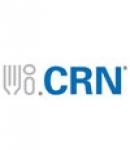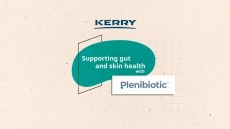Supplement usage holding steady, CRN survey finds

“It’s holding steady. This is the third year in a row that it’s been at 68%. Over the 15 years we’ve been doing the study it’s been around the two thirds level,” Judy Blatman, vice president of communications for CRN told NutraIngredients-USA. “Because it has been so consistent that makes you feel more comfortable that the data is accurate. That’s nearly seven out of 10 people. That is demonstrating that our products have entered the mainstream.”
CRN is now presenting the data from its survey in a new way, as a multipage info graphic on the organization’s website. The organization will also roll out the data in phases this year, Blatman said.
“We think it’s important to stay on top of these kinds of trends. Traditionally it has been older people and the Baby Boomer who are taking supplements, and we found that 74% of those 55 and older reported taking supplements,” she said. But usage is high in younger groups, too. Usage in the 35-54 age group stood at 65%, while in the 18-34 group it stood at 64%.
“It’s not just the older generation,” Blatman said.
Another striking facet of the data set that CRN released recently is the uniformity of the appeal of supplements. When breaking the US down into four regions, there was very little variation in the reported percentage of supplement users. In the Midwest, usage stood at 69%; the other three regions came in at 68%.
Healthy habits
In this section of the survey, CRN looked at what kinds of habits characterize supplement users, and it also looked at where they are getting their information. The survey found that supplement users were more likely than nonusers to say that they are trying to eat a balanced diet (86% vs 74%), to visit their doctor regularly (75% vs 61%) and to exercise regularly (67% vs 56%).
As far as where they get their information, those regular doctor visits are key. 52% of respondents said they got their information about supplements from their doctors. The next most commonly mentioned sources were pharmacists and nutritionists (28% each) and friends and family (20%).
“We know that doctors are the No. 1 trusted source on dietary supplements. With the high usage levels, what this says to us intuitively is that doctors are actually recommending supplements,” Blatman said.
Top products, indications
As with years past, multivitamins were the big leaders in the specific type of supplements users reported taking. 97% of supplement users reported taking a multivitamin, while 43% reported taking specialty supplements such as omega-3s, fiber supplements or probiotics, and 26% reported taking herbal and botanical supplements such as green tea and garlic. The final category was sports nutrition and weight management, which came in at 19%.
As for the top health indications users mentioned for their reasons for taking supplements, the data looks like this:- General health & wellness—54%
- Fill nutrient gaps in diet—29%
- Bone health—25%
- Immune health—25%
- Healthy aging —24%
- Energy—22%
- Heart health—22%
- Joint health—17%
- Help reduce serious illness risk—17%.
“62% of Generation Y take dietary supplements, and 66% of Gen X. With Baby Boomers it stands at 69% and its 75% with elders. That is a very promising statistic for us,” she said.















